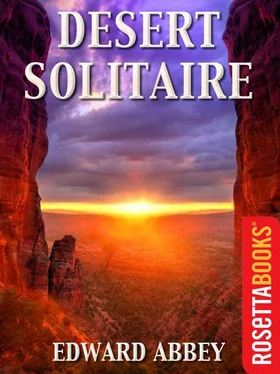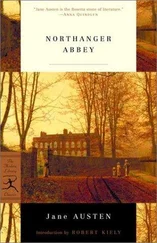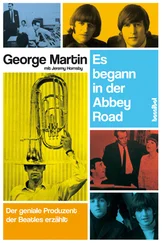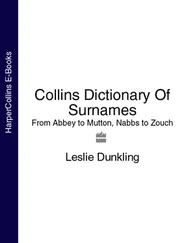Abbey, Edward - Desert Solitaire (Edward Abbey Series )
Здесь есть возможность читать онлайн «Abbey, Edward - Desert Solitaire (Edward Abbey Series )» — ознакомительный отрывок электронной книги совершенно бесплатно, а после прочтения отрывка купить полную версию. В некоторых случаях можно слушать аудио, скачать через торрент в формате fb2 и присутствует краткое содержание. Год выпуска: 2011, Издательство: RosettaBooks, Жанр: Старинная литература, на английском языке. Описание произведения, (предисловие) а так же отзывы посетителей доступны на портале библиотеки ЛибКат.
- Название:Desert Solitaire (Edward Abbey Series )
- Автор:
- Издательство:RosettaBooks
- Жанр:
- Год:2011
- ISBN:нет данных
- Рейтинг книги:4 / 5. Голосов: 1
-
Избранное:Добавить в избранное
- Отзывы:
-
Ваша оценка:
- 80
- 1
- 2
- 3
- 4
- 5
Desert Solitaire (Edward Abbey Series ): краткое содержание, описание и аннотация
Предлагаем к чтению аннотацию, описание, краткое содержание или предисловие (зависит от того, что написал сам автор книги «Desert Solitaire (Edward Abbey Series )»). Если вы не нашли необходимую информацию о книге — напишите в комментариях, мы постараемся отыскать её.
Desert Solitaire (Edward Abbey Series ) — читать онлайн ознакомительный отрывок
Ниже представлен текст книги, разбитый по страницам. Система сохранения места последней прочитанной страницы, позволяет с удобством читать онлайн бесплатно книгу «Desert Solitaire (Edward Abbey Series )», без необходимости каждый раз заново искать на чём Вы остановились. Поставьте закладку, и сможете в любой момент перейти на страницу, на которой закончили чтение.
Интервал:
Закладка:
Some Indians.
Well… the cowboys have their troubles too. Viviano, old Roy Scobie, they’re finished. Cowboyism rides rampant as never before on a field of golden neon dollar signs but job openings for working cowboys are scarce. The cattlegrowing industry like almost everything else has been mechanized and automated. There was a time and not so very long ago when ranching was a way of life, and a good one. Now it is simply a component of the lab to market food-processing apparatus: you take a steer, drop a hormone tablet in his ear and step back quickly. The steer bloats up suddenly like a poisoned pup and you’ve got two hundred dollars worth of marbled beef on the hoof, waiting for the meat hook.
Most of the cowboys I know are out of work or about to lose their jobs or doing something else. My friend Ralph Newcomb studies Sri Aurobindo and Bill Eastlake has sunk to writing novels. Others play the electric guitar, drive trucks, or break their bones with an unpleasant crunching sound on the rodeo circuit. Many are committing slow suicide on skid row (like the Indians) or at best (as Viviano used to do) working overtime in hopes of collecting back pay.
While the actual working cowboy disappears, along with the genuine nonworking Indian, the make-believe cowboys flourish and multiply like flies on a pecan pie. Everywhere you see them now, from California to Florida, from Texas to Times Square, crowding the streets in their big white hats, tight pants, flowered shirts, and high-heeled fruity boots. From the rear many of them look like women; many of them are women. Especially in the small towns west of the Mississippi, where cowboyism as a cult grows in direct ratio to the disappearance of cattle-herding as an occupation, you will see the latest, the Mr. and Mrs. Cattleman couple in authentic matching Western costume—the husband with sunburnt nose and belly bulging over a steerhorn buckle heavy enough to kill a horse with, and his wife, a tall tough broad in gabardines and boots with a look on her face that would make a Comanche blanch.
But it wasn’t always a fake. I think of Viviano, of old Roy, and of another I knew for a while, Leslie McKee, who was both cowboy and cattleman, since he ran a one-man outfit. His career followed an irregular course; every other year the bank took his little ranch away from him and every other year Leslie managed to get it back. Between ranches he worked at whatever he could find. In his youth—long before asphalt—he had driven the first motor stage between Monticello and Moab, a unique bus line which, according to Les, carried three classes of passengers: first class rode, second class walked, third class pushed. He rode as an extra in the movies and got hit in the eye with one of Geronimo’s rubber-tipped arrows. One day on Grand Mesa he came on a bear and roped it, planning to lead it home; he changed his mind when the bear took the rope in both paws and walked toward Les and his horse, coiling up the rope as he came. He’d made a little money in the rodeo game and offered me this advice on riding the broom tails:
“Always give a bronc a fair shake. Don’t pull its head up and don’t grab leather. Better yet don’t get on.”
Like most other cowboys I have known Leslie was getting on in years. Also, he suffered from sciatica and shingles and like me was allergic to tumbleweed. Leslie too went the way of the others, leaving no sons.
Cowboys and Indians disappear, dying off or transforming themselves by tortuous degrees into something quite different. The originals are nearly gone and will soon be lost forever in the overwhelming crowd. Legendary enemies, their ghosts ride away together—buddies at last—into the mythic sunset of the West.
Weep, all you little rains,
wail, winds, wail—
all along, along, along
the Colorado Trail.…
Twilight is over, night is here, the sky is rich with frosty, burning, glittering stars. I become aware that the great horned owl near Balanced Rock has stopped calling; presumably he has found a satisfactory dinner. Bon appetit, mon frère.
My little fire is now completely dead, too cold to rekindle, and I must decide whether to rebuild it or unroll the sleeping bag on the cot and turn in. Not an easy decision. The air is still and cool and I am glad that the heat of the day is finally gone. Tomorrow—or is it the day after?—will be the first of July. I have come to the midpoint of my season in the desert.
WATER
“This would be good country,” a tourist says to me, “if only you had some water.”
He’s from Cleveland, Ohio.
“If we had water here,” I reply, “this country would not be what it is. It would be like Ohio, wet and humid and hydrological, all covered with cabbage farms and golf courses. Instead of this lovely barren desert we would have only another blooming garden state, like New Jersey. You see what I mean?”
“If you had more water more people could live here.”
“Yes sir. And where then would people go when they wanted to see something besides people?”
“I see what you mean. Still, I wouldn’t want to live here. So dry and desolate. Nice for pictures but my God I’m glad I don’t have to live here.”
“I’m glad too, sir. We’re in perfect agreement. You wouldn’t want to live here, I wouldn’t want to live in Cleveland. We’re both satisfied with the arrangement as it is. Why change it?”
“Agreed.”
We shake hands and the tourist from Ohio goes away pleased, as I am pleased, each of us thinking he has taught the other something new.
The air is so dry here I can hardly shave in the mornings. The water and soap dry on my face as I reach for the razor: aridity. It is the driest season of a dry country. In the afternoons of July and August we may get thundershowers but an hour after the storms pass the surface of the desert is again bone dry.
It seldom rains. The geography books credit this part of Utah with an annual precipitation of five to nine inches but that is merely a statistical average. Low enough, to be sure. And in fact the rainfall and snowfall vary widely from year to year and from place to place even within the Arches region. When a cloud bursts open above the Devil’s Garden the sun is blazing down on my ramada. And wherever it rains in this land of unclothed rock the run off is rapid down cliff and dome through the canyons to the Colorado.
Sometimes it rains and still fails to moisten the desert—the falling water evaporates halfway down between cloud and earth. Then you see curtains of blue rain dangling out of reach in the sky while the living things wither below for want of water. Torture by tantalizing, hope without fulfillment. And the clouds disperse and dissipate into nothingness.
Streambeds are usually dry. The dry wash, dry gulch, arroyo seco . Only after a storm do they carry water and then but briefly—a few minutes, a couple of hours. The spring-fed perennial stream is a rarity. In this area we have only two of them, Salt Creek and Onion Creek, the first too salty to drink and the second laced with arsenic and sulfur.
Permanent springs or waterholes are likewise few and far between though not so rare as the streams. They are secret places deep in the canyons, known only to the deer and the coyotes and the dragonflies and a few others. Water rises slowly from these springs and flows in little rills over bare rock, over and under sand, into miniature fens of wire grass, rushes, willow and tamarisk. The water does not flow very far before disappearing into the air and under the ground. The flow may reappear farther down the canyon, surfacing briefly for a second time, a third time, diminishing in force until it vanishes completely and for good.
Another type of spring may be found on canyon walls where water seeps out between horizontal formations through cracks thinner than paper to support small hanging gardens of orchids, monkeyflower, maidenhair fern, and ivy. In most of these places the water is so sparingly measured that it never reaches the canyon floor at all but is taken up entirely by the thirsty plant life and transformed into living tissue.
Читать дальшеИнтервал:
Закладка:
Похожие книги на «Desert Solitaire (Edward Abbey Series )»
Представляем Вашему вниманию похожие книги на «Desert Solitaire (Edward Abbey Series )» списком для выбора. Мы отобрали схожую по названию и смыслу литературу в надежде предоставить читателям больше вариантов отыскать новые, интересные, ещё непрочитанные произведения.
Обсуждение, отзывы о книге «Desert Solitaire (Edward Abbey Series )» и просто собственные мнения читателей. Оставьте ваши комментарии, напишите, что Вы думаете о произведении, его смысле или главных героях. Укажите что конкретно понравилось, а что нет, и почему Вы так считаете.












